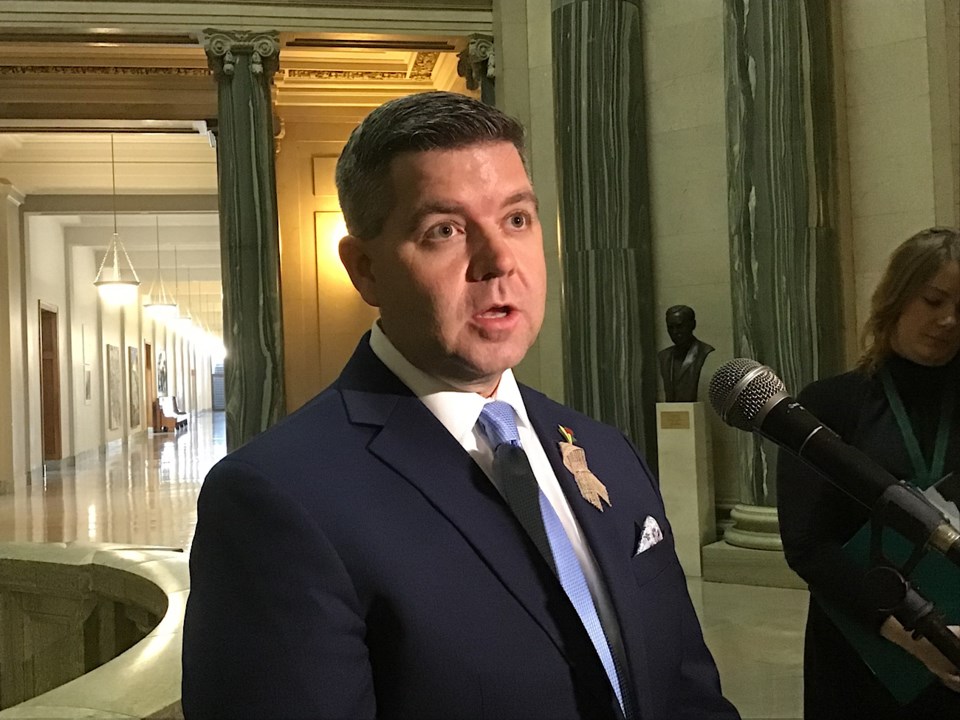REGINA - Saskatchewan is going to see an increase in its Saskatchewan Immigrant Nominee Program allocation from the federal government, as well as control on selection criteria relating to settlement.
This was a result of what provincial Minister of Immigration and Career Training Minister Jeremy Harrison said was a “very positive” meeting of the Forum of Ministers Responsible for Immigration on Friday in Halifax.
Harrison met with federal Minister of Immigration, Refugees and Citizenship Canada Sean Fraser and other ministers from across the country last week.
In speaking to reporters Monday at the legislature, Harrison outlined some highlights of what was achieved last week. The province reports that IRCC has agreed to increase the annual allocation of provincial nominees for 2023, as well as announcing increased notional allocations for 2024 and 2025.
Harrison said this will amount to a 42 percent increase over three years.
“That is very, very substantial. We have not seen an increase, a number allocation for a number of years. To go from 6,000 to 8,500 in over three years is very, very substantial.”
Harrison also pointed to the province getting “complete control on selection criteria as it relates to settlement.”
“That was really one of the central components of our (Saskatchewan) Immigration Accord proposal,” said Harrison, referring to the province’s proposal in July 2022 to gain more autonomy and control over immigration, to set immigration levels, and select skilled immigrants in accordance with labour needs, among others.
“We felt that the federal government were really duplicating a lot of that back end assessment. And it took a lot of time, which really ended up benefitting no one and really hurting newcomers looking to get permanent residence.”
IRCC also agreed to amend federal regulations and the Canada-Saskatchewan Immigration Agreement to take out the federal requirement for that review. Harrison said this “is really a big deal, and it really will result in efficiencies that is going to be of benefit for provinces and territories but most importantly, for those applying for permanent residence.”
There was also a good discussion, though no formal commitment yet, on settlement funding, said Harrison.
“The way it works right now in the Quebec Immigration Accord is basically the federal government provides what they would otherwise provide in their mechanisms to the province to deliver. It reduces duplication, it means that you have the ability to create synergies and efficiencies in the system. And it’s worked there, it’s worked for Quebec. Ultimately, there is going to be, I know, a transfer of this authority to all provinces and territories. So we made very good progress on that.”
The purpose for it, he said, is to “improve outcomes for settlements and ultimately keep people, because they’re settling successfully in the jurisdiction from which they are nominated for permanent residency.”
Harrison also said to reporters to “keep your eye on the budget,” where he hinted there might be something to address processing times.
“It can take up to four years at the federal level, but we’re talking weeks at the provincial level. We want to keep it that way and that obviously means we’re likely going to put more resources behind that, so stay tuned for budget day.”
In a statement, Greater Saskatoon Chamber of Commerce CEO Jason Aebig reiterated support for the Saskatchewan Immigration Accord and its provisions.
"Saskatchewan needs more workers to fill job vacancies in all sectors of the economy," Aebig said. "Federal immigration programs and settlement services are not meeting the needs of Saskatchewan's labour market. We are calling on the federal government to speed up the negotiation process of the Saskatchewan Immigration Accord, enabling Saskatchewan the freedom to dictate immigration levels and deliver services that best support newcomer retention and integration."
In speaking to reporters at the legislature, Opposition critic Trent Wotherspoon called what was agreed to in Halifax a “positive step.” But Wotherspoon made it known he wanted to see even more supports for newcomers once they arrive in terms of jobs and opportunities.
“We need to make sure, though, that we retain newcomers in a much better way to make sure that we have the jobs and opportunities, cost of living, education supports that are going to be able to retain those newcomers, to be able to build and contribute the future of Saskatchewan.”
Wotherspoon noted that retention rates of newcomers to Saskatchewan had plummeted in recent years. “We’ve lost so many newcomers to this province. So we definitely support the increased allocation, but we need to ensure those supports are there.”





